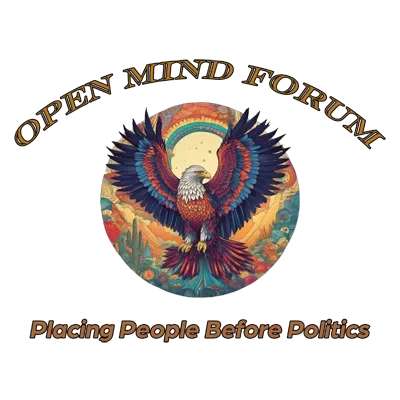Sovereignty, Narcissism, and Ethical Behavior in Contemporary Political Contexts
Introduction
Political control is at the heart of the philosophy of Georgio Agamben that I explore in this post. Including political control and ethical behavior, focusing on sovereignty and narcissistic leadership. By examining Agamben’s theories in contemporary political contexts, the paper shows how his ideas intersect with and challenge modern political philosophers and ethicists. Agamben’s critique of sovereign power and its effects on ethics and society is analyzed alongside the works of thinkers like Michel Foucault, Hannah Arendt, and Judith Butler. Through these comparisons, Agamben’s place in contemporary political and ethical thought is established.

Giorgio Agamben is a key contemporary philosopher. His work explores political control, sovereignty, biopolitics, and the state of exception. He reveals how power influences individuals and society. This paper dissects Agamben’s ideas about political control, focusing on narcissistic leaders. It connects his theories to other philosophers in modern political thought.
Giorgio Agamben’s Concept of Sovereignty and Political Control
Agamben’s philosophy of political control centers on sovereignty and its effect on individuals. In Homo Sacer, he introduces “bare life.” This refers to the way sovereignty reduces individuals to mere biological existence, without political rights. Sovereign power operates by creating a state of exception, suspending normal laws. In this state, the sovereign decides who is included or excluded from the political community. Agamben argues that this suspension of normal laws allows leaders, particularly narcissists, to extend control and undermine democratic principles.
Exceptionality as Sovereign
Agamben’s analysis of sovereignty connects deeply to exceptionality leading directly to political control.
The State of Exception and Political Control
In State of Exception, is not just a temporary pause in law. It reveals sovereignty’s true power: deciding when laws apply or not. Exceptionality lets leaders bypass legal constraints and act unethically. Narcissistic leaders exploit emergencies or create crises to centralize power and manipulate the public. They use the state of exception to benefit themselves while ignoring ethical standards and democratic norms.
Political Control and The State of Exception as Unethical Technique
The state of exception, for Agamben, creates a space where sovereign power becomes absolute. This situation allows leaders to act without legal or moral oversight. The state of exception establishes a permanent condition of lawlessness. Leaders can then exert control in fundamentally unethical ways. By suspending laws and norms, the sovereign can act with impunity.
Exclusion and Destruction
Agamben critiques how the state of exception allows for the exclusion and destruction of people. In Homo Sacer, he discusses “bare life” as a concept where individuals are stripped of political rights. These people are reduced to biological existence, often becoming targets for sovereign power. The state of exception creates conditions for violence or neglect. Leaders can discard people without legal or moral consequence. Agamben uses the concentration camp as an extreme example. People there are reduced to bare life and subjected to sovereign violence. The unethical nature of this practice dehumanizes individuals. It allows the sovereign to decide who belongs and who is expendable.
Case Studies and Modern Implications of Political Control
Agamben’s theory of political control is highly relevant today. Many leaders use emergency powers to justify authoritarian measures. Examples include the internment of minority groups, extraordinary rendition, and extreme surveillance for security. These modern instances reflect Agamben’s warnings about the dangers of exceptionality. Narcissistic leaders use these states of exception to undermine democracy, often for personal gain. They manipulate crises to impose their will, ignoring ethical and legal constraints.
Agamben and Contemporary Political Philosophers
Agamben’s ideas align with other political philosophers. Michel Foucault’s study of biopolitics complements Agamben’s focus on sovereign power. Foucault looks at how power operates over populations. Agamben, by contrast, examines the specific role of sovereignty in creating states of exception. Hannah Arendt’s work on totalitarianism resonates with Agamben’s critique of sovereignty. Arendt explores how authoritarian regimes destroy ethical behavior. Agamben’s concerns about sovereignty’s ethical implications echo Arendt’s warnings about totalitarianism. Judith Butler’s work on identity and norms also intersects with Agamben’s analysis of sovereignty. Butler explores how power constructs identity, much like Agamben’s study of how sovereignty regulates life.
Conclusion
Giorgio Agamben’s philosophy offers a powerful critique of political control and ethical behavior. His focus on sovereignty and the state of exception exposes how narcissistic leaders manipulate power to undermine democracy. Agamben’s theories intersect with those of contemporary philosophers like Foucault, Arendt, and Butler. His work remains crucial to understanding modern political dynamics, particularly how sovereignty can erode ethical standards and democratic values.
Suggestions for Further Reading
- Agamben, Giorgio. Homo Sacer: Sovereign Power and Bare Life. A foundational text on the concept of bare life and sovereignty.
- Agamben, Giorgio. State of Exception. Explores the role of the state of exception in sovereign power.
- Foucault, Michel. Discipline and punish. Discusses power mechanisms and biopolitics, complementing Agamben’s work.
- Arendt, Hannah. The Origins of Totalitarianism. A study on totalitarian regimes and their effects on democracy and ethics.
- Butler, Judith. Gender Trouble. Examines the construction of identity, relevant to Agamben’s analysis of power and norms.
- Esposito, Roberto. Bios: Biopolitics and Philosophy. Another exploration of biopolitics, offering insights into Agamben’s concept of life.
- Dean, Mitchell. The Signature of Power: Sovereignty, Governmentality, and Biopolitics. Provides a detailed study of power that relates to Agamben’s theories.
- Zylinska, Joanna. The Ethics of Life: Contemporary Iberian Debates. Investigates the ethical consequences of biopolitics, echoing Agamben’s concerns.
Disclaimer: The images and videos in this post are AI-generated creations, intended purely for illustrative and conceptual purposes. They are not real-life representations and should not be interpreted as such. Their sole purpose is to offer a visual means of exploring the topics discussed in this post.




